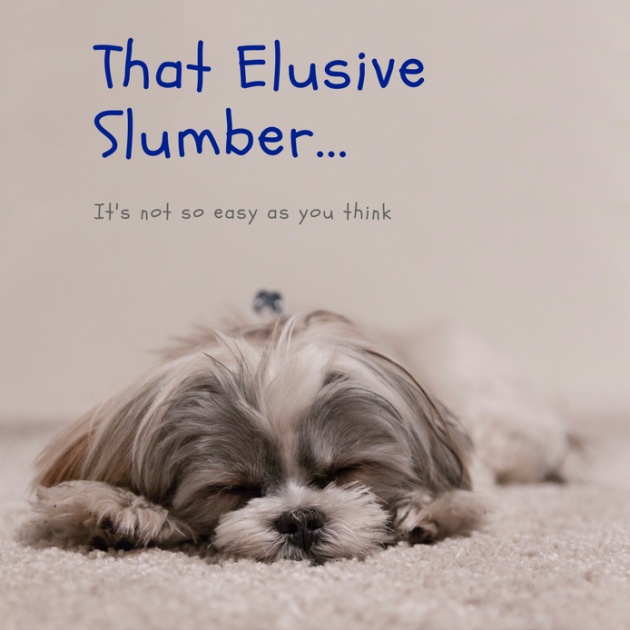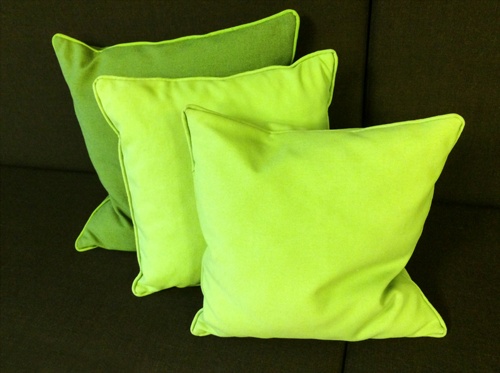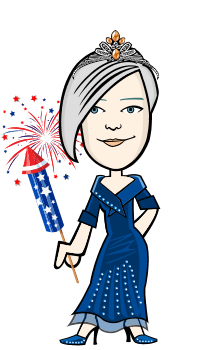
Image credits: Sleeping Dog by Unsplash
I've never been a great sleeper—and by this, I mean I've never been good at it, even when I was a child.
For a long time, I've admired people who can fall asleep in five minutes, even if they're not in the dark or if there's noise all around them; while I need perfect conditions, my weight in sleeping pills, and a couple of prayers to Cthulhu. While I'm not a complete night owl, I'm also not a person who naturally feels tired at 9 pm, and can immediately go to bed and enjoy eight uninterrupted hours of sleep; therefore, considering I have to get up between 5 and 6 am, let's just say that those eight hours are something I've only known when I was sick, or perhaps very drunk. No, scratch that—drunk makes me extra energetic, and I sleep even less.
To sleep, perchance to dream
Let's be honest, though, not sleeping enough is not sustainable in the long run, at least not if one wants life to be more than trudging through work days like a zombie, then lounging around in the evenings, brain too frazzled to properly enjoy their time off. There have been days when I felt it all too acutely, perhaps due to having a more demanding job now, where mistakes due to tiredness aren't something I can brush aside and repair later—at least, not in some cases.
So, a few months ago, after reading a couple of books and a few articles about sleep patterns and techniques, I realised it was high time I did something about it.
My second realisation was that I had no clue where to start. So I started with a basic Google search, and found quite few methods. Some, such as not doing exciting things right before bed, somewhat made sense. Others were, well, not so sustainable: when I look up 'How to fall asleep quickly' and the answer is 'don't do anything for 2 hours before bed and just have a bath in the dark', obviously someone has misunderstood the word 'quickly' here.
Still, after more research, including a couple of interesting books, I found a few things that seemed like they could work for me. And just in case they could be useful to someone else who's also been struggling with falling asleep, I've decided to compile a list.
Things that worked...
Let's start with the useful bits: the ones that worked.
Blue light filters
Amazingly enough, I never really paid attention to this talk of 'no screens before bed'. I work full time and study part time, and being on the computer until right before bed time was just something I did. I had no concept of 'blue light', had no clue how it affects the human body, and though that 'no screens' meant 'no exciting activities like video games... but Facebook should be OK, right?'
Well, it turned out blue light was the killer for me.
I started by installing filters on all my devices. I'm now running F.lux, a free software, on my Windows computer, as well as an app called Twilight on my Android devices (I don't own iOS devices, but I'm sure there are equivalent). These apps can be run using presets, such as the one I use, based on local sunrise and sunset: when the sun is starting to set, they dim the blue light on your screen, and conversely shortly before the sun rises.
Blue light tends to be exciting: it is naturally a component of solar light, and when our bodies are exposed to it because of a computer or smartphone screen, they are tricked into 'believing' the sun is up in the sky... even if it's midnight and pitch dark. As a result, our bodies are less likely to fall asleep. The aforementioned filters, by removing the blue frequency from our devices' light spectrum, contribute to preventing this phenomenon from happening.
Reading in the dark
This won't work if you don't like reading, obviously. If you do, combining blue light filters and a smartphone with a Kindle or other reading app can be a solution: this will allow you to go to bed approximately one hour before your intended time of falling asleep, in the dark, without just lying there bored out of your wits.
I've been trying that for a while, it doesn't make my eyes itchy or my sight blurry (of course, I use large enough fonts and proper luminosity), and I admit I'm not sure how it goes in the long run. Still, I've found it's actually less tiring on my eyes than a paperback with a dim bedside lamp, and it allows me to do something I like before sleeping, which is important to me because I really loathe the feeling of not having enough 'me time.'
NOT reading in the dark
Please note that the above works for me, but is usually not recommended. I do it because I've experimented beforehand, and the feeling of frustration is more stressful for me (and therefore doesn't induce sleep) than plain old reading. If you're someone who can't sleep because you obsess and stress over 'oh my, it's already 10 and I'm not asleep yet, I must must MUST fall asleep quickly, oh no it's already 11!', maybe the whole doing-nothing thing won't help either. Otherwise, it's worth a try as well.
Lower lights 2 hours before bed
I'm not turning on the light full strength anymore. I keep my halogen lamp on minimum settings, and this seems to help as well.
Eating a light dinner early
Food doesn't make me sleepy, unless I eat way too much, and then I'm also uncomfortable and feeling half sick. Eating a light dinner early (some 3-4 hours before my intended sleep time, i.e. 6-7 pm if I want to be asleep by 10 pm) has allowed me to strike a good balance here. Even though I'm sometimes hungry by the time I go to sleep, I'm also too lazy to bother about grabbing some food again after brushing my teeth and flossing—yes, laziness can be an asset at times. If this can work for you, too, it's worth trying.
No caffeine after noon
I used to be a huge coffee drinker (3 to 5 mugs per day, and we're not talking a little coffee with a big dose of milk here, since I drink it black, like my soul). However, according to studies I read, caffeine can take quite a few hours to get out of your system, and that coffee at 4pm may still be with you by midnight. Now I only drink coffee in the mornings, and no later than 11 am-noon, and it seems to help.
The same goes for tea. After 2-3 pm, I switch to rooibos tea (redbush tea / non-caffeinated).
Finally, I suppose alcohol and tobacco can also be included here. I don't smoke, and I'm not a regular drinker, so I can't tell.

Image credits: Flat Coffee Icon by Canva Layouts
Exercise early
This one is hard to balance: exercising makes you more likely to be physically tired, ensuring better deep sleep. On the other hand, it will also excite your body, and if done too close to bedtime, then it can prevent you from sleeping. If you can exercise early morning, that's really the best—or, at least, not after 8 pm.
Breathing exercises
I haven't needed to do that in a while. A simple breathing exercise (like 2 breaths in, 4 breaths out) helped me in the beginning, though. Being focused on your breathing is a good way to stop focusing on other, stressful things, such as replaying your day in your head, finally thinking of a comeback you wanted to say to someone who annoyed you, and so on.
Blocking out light/sounds
Such as sleeping with a mask on your eyes and/or earplugs. Unfortunately for me, I'm very sensitive to both light and sounds, so I have to use both. The earplugs especially help; I can still hear the alarm on my smartphone in the mornings, too, so it hasn't been a problem in that regard.
Finding the right temperature
If the room is too cold, you'll be shivering, but if it's too hot, or if you're wearing too many layers of night clothes, then it will also prevent you from sleeping. This is why, for instance, some people sleep with their feet sticking out: feet, hands and face allow our bodies to let some heat out, making it easier to fall (or stay) asleep.
Consistent bedtime
We need to retrain our bodies to sleep at proper times. Going to bed at 9 pm one day and at midnight the next only makes them confused. At least on work days, trying to get a consistent bedtime is much better.
I recommend trying to stick to it on weekends, too. Going to bed late on a Saturday, and then getting up later on the Sunday, will also push back by as many hours the moment when your body feels tired in the evening; Monday morning will then be all the harder.

Image credits: Pillows by Didgeman from CC0
... And things that didn't work so well
Having a bath in the dark
(To avoid resorting to electric lights)
I read that advice online and wanted to try.
That was... boring, to say the least, and a little dangerous when I almost tripped in the bathroom. To each their own, I suppose.
Chamomile/tea right before bed
Notwithstanding the fact that, for some unknown reason, chamomile acts like a stimulus for me, drinking a mug of something within 1-2 hours of going to bed is a good way to wake up at night because you need the bathroom. It may not be such an issue for someone who has no trouble getting back to sleep after such an interruption, but since you're reading this, may I assume you're not that someone?
The little night cap
There's that old saying about alcohol helping you sleep. For some people yes, but 1) not for me, and 2) this kind of sleep is of poor quality.
Sleeping pills
Well, they do work... for a time. Then our bodies get accustomed to them, and need stronger doses—rinse and repeat. Depending on the pills, some also leave you feeling drowsy in the morning, or with an awful taste in your mouth (Zopiclone, I'm looking at you). They're probably still the least bad choice, if the choice is between those and insomnia. Nevertheless, I do hope that I won't have to rely on those anymore in the future... and that some of the tips I've outlined in this post will help you with this, too.
Recommended, but not always doable
Separate your sleeping space from your living space
Impossible for me, since I'm in a flat share and my room is both my bedroom and my study room. If I had a separate bedroom, though, I'd definitely keep it for sleeping only, and not TV, gaming, and studying.
To conclude...
These are by no means THE ultimate solutions to sleeping better. Some of these tips may work well for you, too, or not at all—or you may have tips of your own, in which case I'll be happy to hear about them.
Recommended reading
- WALKER, Matthew, Why We Sleep: The New Science of Sleep and Dreams, Penguin, 2017 — Easy to read, somewhat frightening (in that it highlights the problems chronic lack of sleep can cause), but clearly a book that inspired me.
- Your Guide to Healthy sleep, courtesy of the National Heart, Lung, and Blood Institute, National Institutes of Health, U.S Department of Health and Human Services



